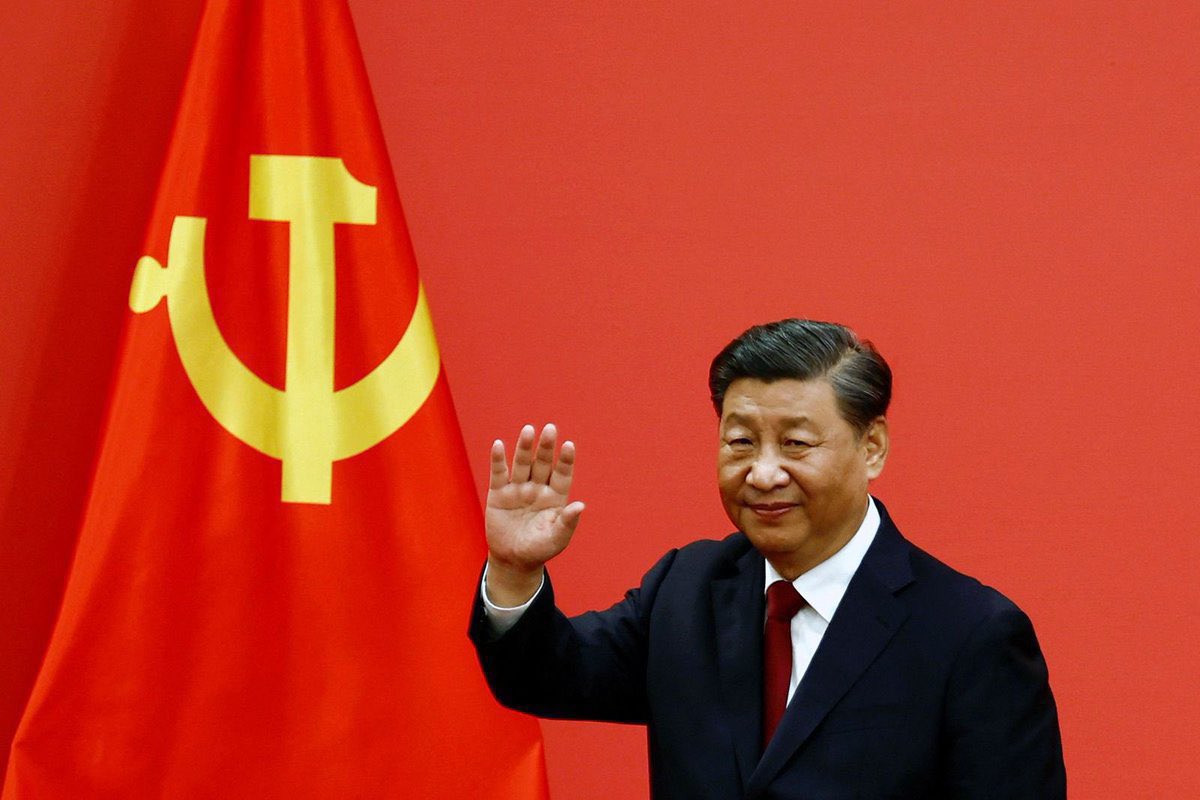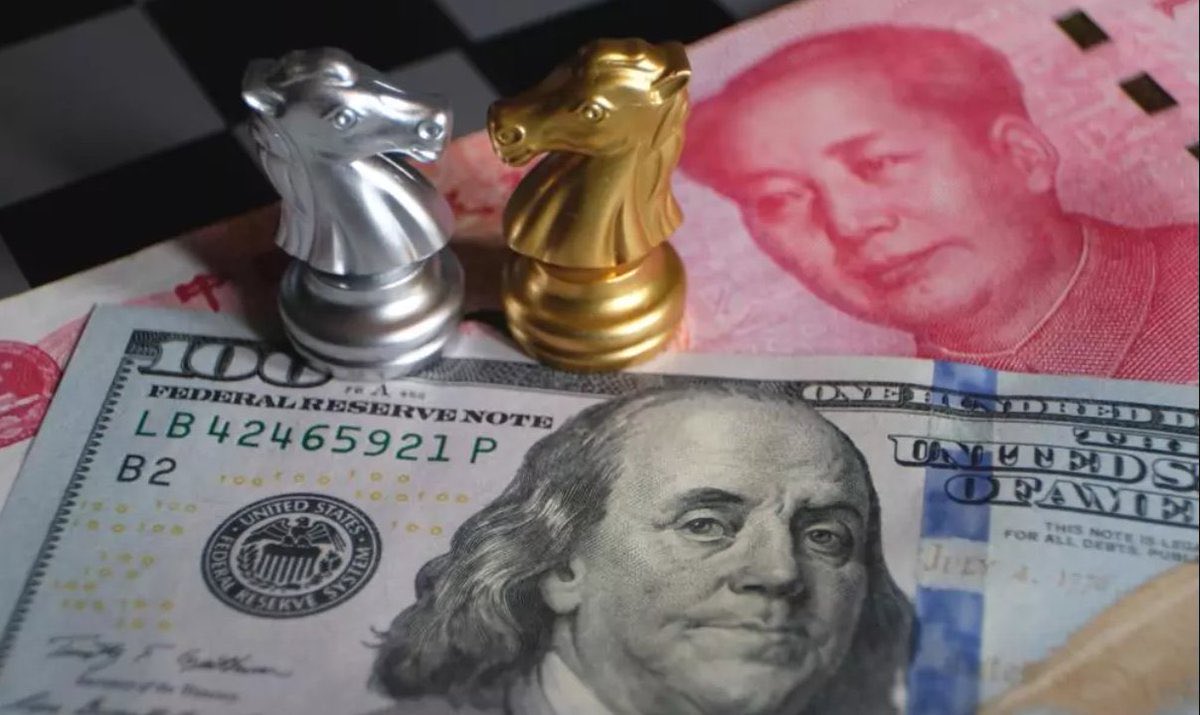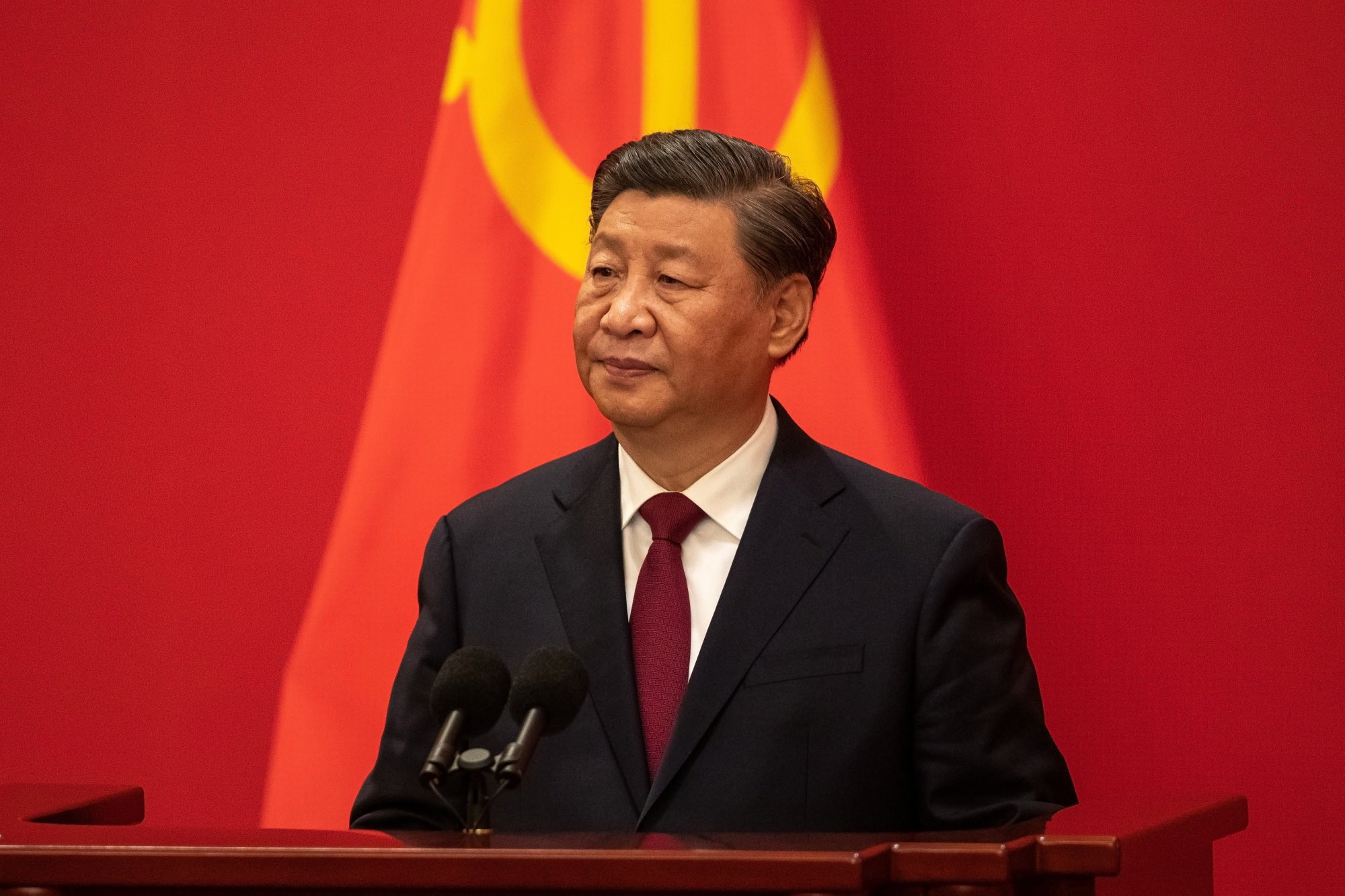"Cambricon ตั้งเป้าเพิ่มการผลิตชิป AI 3 เท่า – หวังแทนที่ Nvidia และท้าชน Huawei"
ข่าวนี้เล่าถึงบริษัท Cambricon Technologies ของจีนที่ตั้งเป้า เพิ่มการผลิตชิป AI เป็น 3 เท่าในปี 2026 เพื่อทดแทนช่องว่างที่ Nvidia ถอนตัวออกจากตลาดจีน และแข่งขันกับ Huawei แต่ยังมีข้อกังวลเรื่องกำลังการผลิตและคุณภาพการผลิตที่ต่ำ
Cambricon Technologies มีแผนจะผลิตชิป AI กว่า 500,000 ตัวในปี 2026 รวมถึงรุ่นเรือธง Siyuan 590 และ 690 ซึ่งมากกว่าสามเท่าของจำนวนที่คาดว่าจะผลิตในปี 2025 (ประมาณ 142,000 ตัว). การขยายนี้เกิดขึ้นหลังจาก Nvidia ถูกจำกัดการส่งออกชิปไปยังจีน ทำให้เกิดช่องว่างในตลาดที่บริษัทจีนพยายามเข้ามาเติมเต็ม.
Cambricon จะพึ่งพากำลังการผลิตจาก Semiconductor Manufacturing International Corp (SMIC) โดยใช้กระบวนการผลิต 7nm N+2 แต่ยังมีข้อกังวลเรื่องคุณภาพ เนื่องจากชิป Siyuan มีอัตราการผลิตที่ใช้ได้จริงเพียง 20% หรือหนึ่งในห้าของจำนวนที่ผลิตออกมา ซึ่งถือว่าต่ำมากเมื่อเทียบกับ TSMC ที่มี yield rate สูงถึง 60%.
แม้จะมีข้อจำกัดด้านเทคนิค แต่ Cambricon ได้รับแรงหนุนจากรัฐบาลจีนและความต้องการภายในประเทศ โดยมีลูกค้ารายใหญ่เช่น Alibaba และ ByteDance ที่หันมาใช้ชิปจีนตามนโยบายลดการพึ่งพาต่างชาติ รายได้ของบริษัทก็เพิ่มขึ้นกว่า 14 เท่าในไตรมาสล่าสุด สะท้อนความต้องการที่พุ่งสูงในตลาด AI.
อย่างไรก็ตาม ความท้าทายยังคงอยู่ที่ การจัดหาวัสดุพื้นฐานและหน่วยความจำ (HBM, LPDDR) ซึ่งขาดแคลนทั่วโลก รวมถึงการแข่งขันกับ Huawei ที่ประกาศว่าจะเพิ่มการผลิตชิปเช่นกัน ทำให้อนาคตของ Cambricon แม้จะสดใส แต่ก็เต็มไปด้วยความเสี่ยงด้านเทคนิคและทรัพยากร.
สรุปประเด็นสำคัญ
ข้อมูลจากข่าว
Cambricon ตั้งเป้าผลิตชิป AI 500,000 ตัวในปี 2026
ใช้กำลังการผลิตจาก SMIC ที่กระบวนการ 7nm N+2
Yield rate ของชิป Siyuan อยู่ที่ 20% เทียบกับ TSMC ที่ 60%
ลูกค้ารายใหญ่: Alibaba และ ByteDance
รายได้ไตรมาสล่าสุดเพิ่มขึ้น 14 เท่า
ข้อมูลเสริมจาก Internet
ตลาดชิป AI คาดว่าจะเติบโตเฉลี่ย 25% ต่อปีในช่วง 2025–2030
Huawei กำลังเพิ่มการผลิตชิป AI เพื่อตอบสนองความต้องการในประเทศ
การขาดแคลน HBM และ LPDDR เป็นปัญหาสำคัญทั่วโลก
คำเตือนจากข่าว
Yield rate ต่ำอาจทำให้ต้นทุนสูงและการผลิตไม่คุ้มค่า
การขาดแคลนหน่วยความจำอาจทำให้คำสั่งซื้อไม่สามารถส่งมอบได้
การแข่งขันกับ Huawei อาจทำให้ Cambricon เสียเปรียบในตลาดภายในประเทศ
https://www.tomshardware.com/tech-industry/chinese-tech-firm-cambricon-looks-to-step-into-nvidia-void-triple-ai-chip-production-next-year-seeks-to-rival-huawei-but-production-remains-a-concern
ข่าวนี้เล่าถึงบริษัท Cambricon Technologies ของจีนที่ตั้งเป้า เพิ่มการผลิตชิป AI เป็น 3 เท่าในปี 2026 เพื่อทดแทนช่องว่างที่ Nvidia ถอนตัวออกจากตลาดจีน และแข่งขันกับ Huawei แต่ยังมีข้อกังวลเรื่องกำลังการผลิตและคุณภาพการผลิตที่ต่ำ
Cambricon Technologies มีแผนจะผลิตชิป AI กว่า 500,000 ตัวในปี 2026 รวมถึงรุ่นเรือธง Siyuan 590 และ 690 ซึ่งมากกว่าสามเท่าของจำนวนที่คาดว่าจะผลิตในปี 2025 (ประมาณ 142,000 ตัว). การขยายนี้เกิดขึ้นหลังจาก Nvidia ถูกจำกัดการส่งออกชิปไปยังจีน ทำให้เกิดช่องว่างในตลาดที่บริษัทจีนพยายามเข้ามาเติมเต็ม.
Cambricon จะพึ่งพากำลังการผลิตจาก Semiconductor Manufacturing International Corp (SMIC) โดยใช้กระบวนการผลิต 7nm N+2 แต่ยังมีข้อกังวลเรื่องคุณภาพ เนื่องจากชิป Siyuan มีอัตราการผลิตที่ใช้ได้จริงเพียง 20% หรือหนึ่งในห้าของจำนวนที่ผลิตออกมา ซึ่งถือว่าต่ำมากเมื่อเทียบกับ TSMC ที่มี yield rate สูงถึง 60%.
แม้จะมีข้อจำกัดด้านเทคนิค แต่ Cambricon ได้รับแรงหนุนจากรัฐบาลจีนและความต้องการภายในประเทศ โดยมีลูกค้ารายใหญ่เช่น Alibaba และ ByteDance ที่หันมาใช้ชิปจีนตามนโยบายลดการพึ่งพาต่างชาติ รายได้ของบริษัทก็เพิ่มขึ้นกว่า 14 เท่าในไตรมาสล่าสุด สะท้อนความต้องการที่พุ่งสูงในตลาด AI.
อย่างไรก็ตาม ความท้าทายยังคงอยู่ที่ การจัดหาวัสดุพื้นฐานและหน่วยความจำ (HBM, LPDDR) ซึ่งขาดแคลนทั่วโลก รวมถึงการแข่งขันกับ Huawei ที่ประกาศว่าจะเพิ่มการผลิตชิปเช่นกัน ทำให้อนาคตของ Cambricon แม้จะสดใส แต่ก็เต็มไปด้วยความเสี่ยงด้านเทคนิคและทรัพยากร.
สรุปประเด็นสำคัญ
ข้อมูลจากข่าว
Cambricon ตั้งเป้าผลิตชิป AI 500,000 ตัวในปี 2026
ใช้กำลังการผลิตจาก SMIC ที่กระบวนการ 7nm N+2
Yield rate ของชิป Siyuan อยู่ที่ 20% เทียบกับ TSMC ที่ 60%
ลูกค้ารายใหญ่: Alibaba และ ByteDance
รายได้ไตรมาสล่าสุดเพิ่มขึ้น 14 เท่า
ข้อมูลเสริมจาก Internet
ตลาดชิป AI คาดว่าจะเติบโตเฉลี่ย 25% ต่อปีในช่วง 2025–2030
Huawei กำลังเพิ่มการผลิตชิป AI เพื่อตอบสนองความต้องการในประเทศ
การขาดแคลน HBM และ LPDDR เป็นปัญหาสำคัญทั่วโลก
คำเตือนจากข่าว
Yield rate ต่ำอาจทำให้ต้นทุนสูงและการผลิตไม่คุ้มค่า
การขาดแคลนหน่วยความจำอาจทำให้คำสั่งซื้อไม่สามารถส่งมอบได้
การแข่งขันกับ Huawei อาจทำให้ Cambricon เสียเปรียบในตลาดภายในประเทศ
https://www.tomshardware.com/tech-industry/chinese-tech-firm-cambricon-looks-to-step-into-nvidia-void-triple-ai-chip-production-next-year-seeks-to-rival-huawei-but-production-remains-a-concern
⚙️ "Cambricon ตั้งเป้าเพิ่มการผลิตชิป AI 3 เท่า – หวังแทนที่ Nvidia และท้าชน Huawei"
ข่าวนี้เล่าถึงบริษัท Cambricon Technologies ของจีนที่ตั้งเป้า เพิ่มการผลิตชิป AI เป็น 3 เท่าในปี 2026 เพื่อทดแทนช่องว่างที่ Nvidia ถอนตัวออกจากตลาดจีน และแข่งขันกับ Huawei แต่ยังมีข้อกังวลเรื่องกำลังการผลิตและคุณภาพการผลิตที่ต่ำ
Cambricon Technologies มีแผนจะผลิตชิป AI กว่า 500,000 ตัวในปี 2026 รวมถึงรุ่นเรือธง Siyuan 590 และ 690 ซึ่งมากกว่าสามเท่าของจำนวนที่คาดว่าจะผลิตในปี 2025 (ประมาณ 142,000 ตัว). การขยายนี้เกิดขึ้นหลังจาก Nvidia ถูกจำกัดการส่งออกชิปไปยังจีน ทำให้เกิดช่องว่างในตลาดที่บริษัทจีนพยายามเข้ามาเติมเต็ม.
Cambricon จะพึ่งพากำลังการผลิตจาก Semiconductor Manufacturing International Corp (SMIC) โดยใช้กระบวนการผลิต 7nm N+2 แต่ยังมีข้อกังวลเรื่องคุณภาพ เนื่องจากชิป Siyuan มีอัตราการผลิตที่ใช้ได้จริงเพียง 20% หรือหนึ่งในห้าของจำนวนที่ผลิตออกมา ซึ่งถือว่าต่ำมากเมื่อเทียบกับ TSMC ที่มี yield rate สูงถึง 60%.
แม้จะมีข้อจำกัดด้านเทคนิค แต่ Cambricon ได้รับแรงหนุนจากรัฐบาลจีนและความต้องการภายในประเทศ โดยมีลูกค้ารายใหญ่เช่น Alibaba และ ByteDance ที่หันมาใช้ชิปจีนตามนโยบายลดการพึ่งพาต่างชาติ รายได้ของบริษัทก็เพิ่มขึ้นกว่า 14 เท่าในไตรมาสล่าสุด สะท้อนความต้องการที่พุ่งสูงในตลาด AI.
อย่างไรก็ตาม ความท้าทายยังคงอยู่ที่ การจัดหาวัสดุพื้นฐานและหน่วยความจำ (HBM, LPDDR) ซึ่งขาดแคลนทั่วโลก รวมถึงการแข่งขันกับ Huawei ที่ประกาศว่าจะเพิ่มการผลิตชิปเช่นกัน ทำให้อนาคตของ Cambricon แม้จะสดใส แต่ก็เต็มไปด้วยความเสี่ยงด้านเทคนิคและทรัพยากร.
📌 สรุปประเด็นสำคัญ
✅ ข้อมูลจากข่าว
➡️ Cambricon ตั้งเป้าผลิตชิป AI 500,000 ตัวในปี 2026
➡️ ใช้กำลังการผลิตจาก SMIC ที่กระบวนการ 7nm N+2
➡️ Yield rate ของชิป Siyuan อยู่ที่ 20% เทียบกับ TSMC ที่ 60%
➡️ ลูกค้ารายใหญ่: Alibaba และ ByteDance
➡️ รายได้ไตรมาสล่าสุดเพิ่มขึ้น 14 เท่า
✅ ข้อมูลเสริมจาก Internet
➡️ ตลาดชิป AI คาดว่าจะเติบโตเฉลี่ย 25% ต่อปีในช่วง 2025–2030
➡️ Huawei กำลังเพิ่มการผลิตชิป AI เพื่อตอบสนองความต้องการในประเทศ
➡️ การขาดแคลน HBM และ LPDDR เป็นปัญหาสำคัญทั่วโลก
‼️ คำเตือนจากข่าว
⛔ Yield rate ต่ำอาจทำให้ต้นทุนสูงและการผลิตไม่คุ้มค่า
⛔ การขาดแคลนหน่วยความจำอาจทำให้คำสั่งซื้อไม่สามารถส่งมอบได้
⛔ การแข่งขันกับ Huawei อาจทำให้ Cambricon เสียเปรียบในตลาดภายในประเทศ
https://www.tomshardware.com/tech-industry/chinese-tech-firm-cambricon-looks-to-step-into-nvidia-void-triple-ai-chip-production-next-year-seeks-to-rival-huawei-but-production-remains-a-concern
0 Comments
0 Shares
368 Views
0 Reviews











